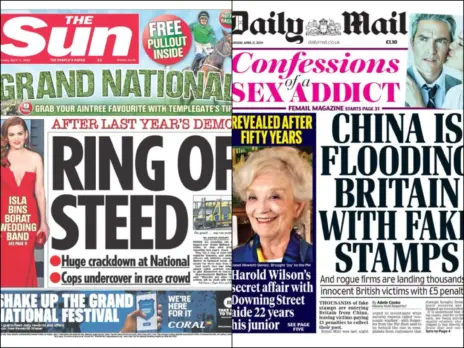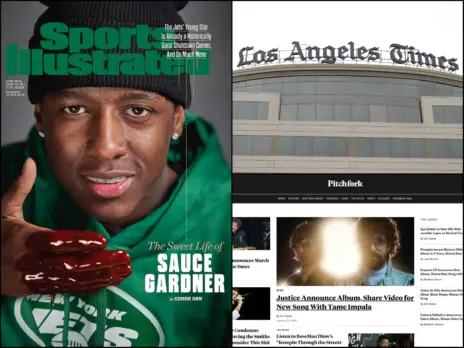The Sun’s head of news Chris Pharo told a court it is “the nature of tabloid journalism to claim you have sources in public bodies”.
Pharo yesterday denied knowing that a Broadmoor healthcare assistant, an alleged contact of reporter Jamie Pyatt, was a public official.
He told Kingston Crown Court that reporters routinely exaggerated their sources to impress him and other senior colleagues.
“Every journalist I have ever known claims to have contacts at extremely high levels,” he said.
“It's the nature of how they presented themselves.”
The jury were shown an email from December 2007 where Pyatt asks for £650 for his “new Broadmoor contact who seems v good”.
The reporter said he also wanted to pay two other sources, including a “police contact”, adding: “Due to the careers of all three payments into bank accounts not viable.”
“Did that not indicate to you this was someone employed at Broadmoor?” said Wright.
Pharo said plenty of activity inside Broadmoor quickly became the topic of conversation in the village pubs of Crowthorne where the hospital is based.
“You didn't care,” said Wright.
Pharo said: “Not particularly, it wouldn't have concerned me if the story is in the public interest and was published in the paper.”
Wright countered: “This was a matter of supreme indifference whether this man was employed or not at the hospital.”
Pharo replied: “If the story coming to us is in the public interest then I would agree with that.”
In an email earlier in the day, reporter Alex West sent a memo to Pharo saying “the tipster is Bob” along with a phone number.
The court has heard this is a reference to Robert Neave, a Broadmoor healthcare assistant, who Pyatt is accused of paying for stories.
“You are being told the name of a tipster and you are being given a phone number,” said Wright.
“We know that's Robert Neave and we know that's his phone number.”
He said: “It's the nature of tabloid journalism to claim you have sources in public bodies.”
Pharo also argued that having a soldier serving with Prince Harry in Afghanistan was “legitimate”.
The court was shown an email from Pyatt claiming to have a contact who was due to be deployed with the Royal when a media blackout of the Prince's involvement had been imposed.
“No editor decides what is in the public interest of a public official,” suggested Wright.
“I think they do,” said Pyatt.
“Clearly the editor of The Daily Telegraph did when he paid £150,000 for the MPs’ expense [information].”
Wright replied: “So that's a green light for every editor to have a public official in their pocket?”
Pharo said: “On a story of this calibre, Prince Harry on the front line, it would be a very unusual world for newspapers not to be monitoring what's happening when the third in line to the throne was on the front line fighting for his country.
“The answer would [be] yes, in certain circumstances.”
Pharo, who was paid £80,000 a year in his role as head of news, said the decision was ultimately made by senior executives on the paper above him, as well as the editor.
Wright told the court: “The proposal here is there be a source fighting alongside Prince Harry in Afghanistan who is informing the newspaper on a daily basis of events.
“That would indeed by confidential information.”
Pharo said: “Not necessarily, it would largely depend on what information was, whether it was in a public interest situation.
“Clearly having a source close to Prince Harry could be important, but I can't say with any certainty whether this was an accurate depiction.
“It's ultimately stuff alongside Prince Harry in one of the most important stories the paper has covered in many years.”
Judge Marks asked who decided whether information received by The Sun about Prince Harry's deployment was in the public interest.
Pharo replied: “Ultimately any information, we would run it past the editor and she would make the ultimate decision.”
Wright asked: “So it was in the public interest for a public officer to be divulging information on where Harry would be to a national newspaper in return for payment?”
Pharo replied: “Ultimately a newspaper monitoring what's happening on the front line when the third in line to the throne is fighting is legitimate.”
Pharo later denied paying off staff at Broadmoor Hospital was “utterly consistent” with his philosophy as Sun news editor.
Pyatt emailed Pharo on 9 September 2009, asking for £750 to be “split between Broadmoor contact and a Thames Valley police contact” for a story about a nurse having sex with a patient in the maximum security hospital.
He said he had been supplied with the nurse's name and address, and boasted that he had “bought off two other Broadmoor staff who came to us”, the court heard.
Pharo told the jury: “It's Jamie writing in extremely florid terms, not simply claiming this story came from one Broadmoor contact but he's claiming it came from four separate contacts.”
Wright asked: “There's no indication of buying off Broadmoor staff?”
Pharo replied: “Not from these emails.”
Wright said: “Is it because that was utterly consistent with your philosophy?”
Pharo replied: “No, it wasn't.”
He argued that the contacts may not have been what they appeared from the email, as journalists often inflate their sources.
“You can't take at face value a great deal of what he says,” said Pharo.
The court was shown an email in which Pyatt suggests he had been handed a criminal file by one of his contacts.
“It's obvious to me that information would be held in confidence by a police officer, but it's not clear to me that the source of the information is a police officer,” said Pharo.
“I believe it would be wrong for a police officer to hand over a criminal file.”
Judge Marks asked him: “Are you suggesting someone other than a police officer had access to and handed over a criminal file?”
Pharo replied: “It's a possibility, it's a long time ago but stranger things have happened.”
Wright used an email exchange with Pyatt to challenge Pharo's claim that he did not authorise payments.
In August 2008, Pharo told the reporter: “I can't pay until it's sorted” when a Broadmoor story was the subject of a complaint from the hospital.
Wright said: “That demonstrates your role is rather more than you are prepared to admit.”
Pharo replied: “No, it's not.”
Pharo also told the court a string of stories about Broadmoor had all been in the public interest, including an exclusive picture of killer Robert Knapper feeding chickens in the grounds.
“I'm not arguing the public interest is strong enough in each case to make it legitimate to pay a public official,” he said.
“It was unclear whether it was a public official but I strongly believe these stories were in the public interest.”
He added: “I've reached a considered view that ultimately our readers have a right to know what goes on inside Broadmoor Hospital, it goes to the heart of the way the criminal justice system is run.
“Many people think Robert Knapper should be behind the walls of a maximum security prison rather than in a hospital feeding chickens.”
Earlier, a juror sent a note saying: “Was the description of 'valuing' stories specifically detailed in the job description of Mr Pharo, and if so did it state he was valuing [or] approving?”
Pharo replied that he did not have a job description for his role on the newspaper.
Closing his cross examination, Wright asked if Pharo had considered the consequences of paying public officials.
He asked: “In the pursuit of stories for The Sun over your time there, did you ever consider the damage that may be done to the public trust in the public office held by a number of different officials?”
“I have to say it didn't generally occur to me,” said Pharo.
“The reality was we were working very hard to get stories in the paper.
“The company has a cash payment system set up that allows journalists to pay sources for stories.
“I accept it was ripe for abuse and public officials have been paid, but in none of the circumstances did I have any certainty the money was going to public officials.”
Wright asked: “Did you ever consider the damage that may be done to those citizens directly affected by those disclosures – the parents of the boy who died in a glider accident?”
Pharo replied: “I understand the way the parents of the boy who died in the glider accident would feel but I make the point his identity would come out within a few hours of it being in our newspaper.
“We always consider the impact on the deceased's family in these situations.”
Wright said: “Is it just they were simply collateral damage?”
Pharo replied: “I utterly refute that.”
A character reference was read to the jury from Dave Robinson, a retired IT executive, who with Pharo founded the Sandhurst Cricket Club.
He described the journalist as an “honest, truthful person”, and paid tribute to his efforts building up the cricket club and supporting younger members.
“Chris emerged as a natural leader of men who led from the front by example,” he said.
“Chris's honesty and integrity have shone through in everything he has done.”
He added: “I and others regard him as a fine upstanding member of our community.”
The trial continues tomorrow at 12pm.
Email pged@pressgazette.co.uk to point out mistakes, provide story tips or send in a letter for publication on our "Letters Page" blog







